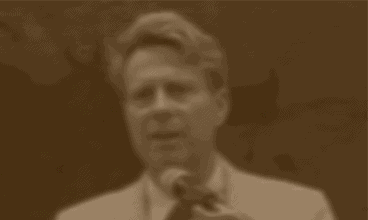2001 Mightier Pen Award: Mark Helprin

(Washington, D.C.): On 18 April, in the company of nearly 150 past and present security policy-practitioners, senior congressional staff members and journalists, Deputy Secretary of Defense Paul Wolfowitz presented novelist and essayist Mark Helprin with the Center for Security Policy’s first “Mightier Pen” award. This honor was bestowed on Mr. Helprin in recognition of the enormous contribution his published writings — in such publications as The Wall Street Journal, National Review, Forbes, Commentary and The New Yorker and numerous highly acclaimed novels — have made to the public’s appreciation of the need for robust U.S. national security policies and military strength as an indispensable ingredient in promoting international peace.
Highlights of the introductory remarks made by Deputy Secretary of Defense Paul Wolfowitz at the award luncheon at the Four Seasons Hotel included the following:
“Mark Helprin…brings a novelist’s insight to his writing on national security affairs, with powerful prose, eloquent phrasing [and] profound insights. And he holds the radical belief that the past and the present are intimately connected.”
“The subject of national security is so important and so often poorly covered or misunderstood by an easily-distracted public. We’re short these days on practical experience in national security affairs, and the trends are only getting worse.”
“Today the public-at-large is often disconnected from our men and women in uniform, and frequently disinterested in national security policy and the issues that are important for our nation’s defense. Today, and even more so tomorrow, most of the public’s knowledge of national security issues will come from the media, and disproportionately from the print media. That is an awesome burden.”
“If we are going to repair and ultimately transform our national defense, we will need the support and the understanding of the American people. We will require national security reporters who are interested in background, substance and fact, and who can give us better news stories, better essays, better features. Most of all we need writers who are capable of informed judgement, animated by mightier pens. Pens like that of Mark Helprin.”
The following were among the most notable of Mr. Helprin’s characteristically witty, elegantly expressed and trenchant remarks:
“To some extent we have neglected what I consider to be the cardinal issue. The cardinal issue of American national security is not China, is not Russia, is not weapons of mass destruction, is not missile defense, or terrorism, readiness, unit cohesion, or anything else of that sort. It is rather, that the general consensus in regard to defense since Pearl Harbor — that ‘doing too much is better than doing too little’ — has been destroyed.”
“The last time we spent a lesser proportion of our resources on defense, we were well-protected by the oceans. We were in the midst of a depression. We had no major international responsibilities. And it was still a dereliction of duty.”
“It’s hard to think of anything less appealing than war with China. But if we don’t want that, we have to be able to deter China. And to deter China, we must be able to fight China.”
“God save the American soldier from those who believe that his life can be protected and his mission accomplished on the cheap. Because what they perceive as extravagance is always cheaper in the end than the wars that this so-called extravagance will deter or win quickly.”
Mr. Helprin concluded his acceptance address with a direct appeal for President Bush to engage on behalf of the necessary increases in defense preparedness:
- In defending the United States, doing too much is more prudent than doing too little…. Only [the President] can sway a timid Congress, pave the way for his appointees and move the country toward the restoration of its military power. The President himself must make the argument, or all else is in vain. If he is unwilling to do so; if he is unwilling to risk his political capital and his presidency to remedy the damage of the past eight years, then in the fire next time, his name will be linked with that of his predecessor and there it will stay forever.
Among those present for the CSP luncheon were: Dean McGrath, Deputy Chief of Staff to Vice President Cheney; the Director of the Office of Net Assessment, Andrew Marshall; former Under Secretary of State William Schneider, now counselor to Secretary Rumsfeld; former Assistant Secretary of Defense Richard Perle; former National Security Advisor Robert McFarlane; Pentagon Spokesman Rear Admiral Craig Quigley; Captain William Luti USN, Military Assistant to the Vice President; Washington Post columnist Charles Krauthammer; U.S. News and World Report editor, Michael Barone; and CSP Military Committee Members, Admiral Bruce DeMars USN (Ret.), General Frederick Kroesen USA (Ret.), Admiral Wesley McDonald USN (Ret.) and Vice Admiral J.D. Williams USN (Ret.); and CSP sponsor Poju Zabludowicz.
- Military Starship: How SpaceX Is About to Make America Globally Dominant - March 4, 2025
- The Cautionary Tale of Zheng He - December 4, 2024
- Frank Gaffney departs CSP after 36 years - September 27, 2024
